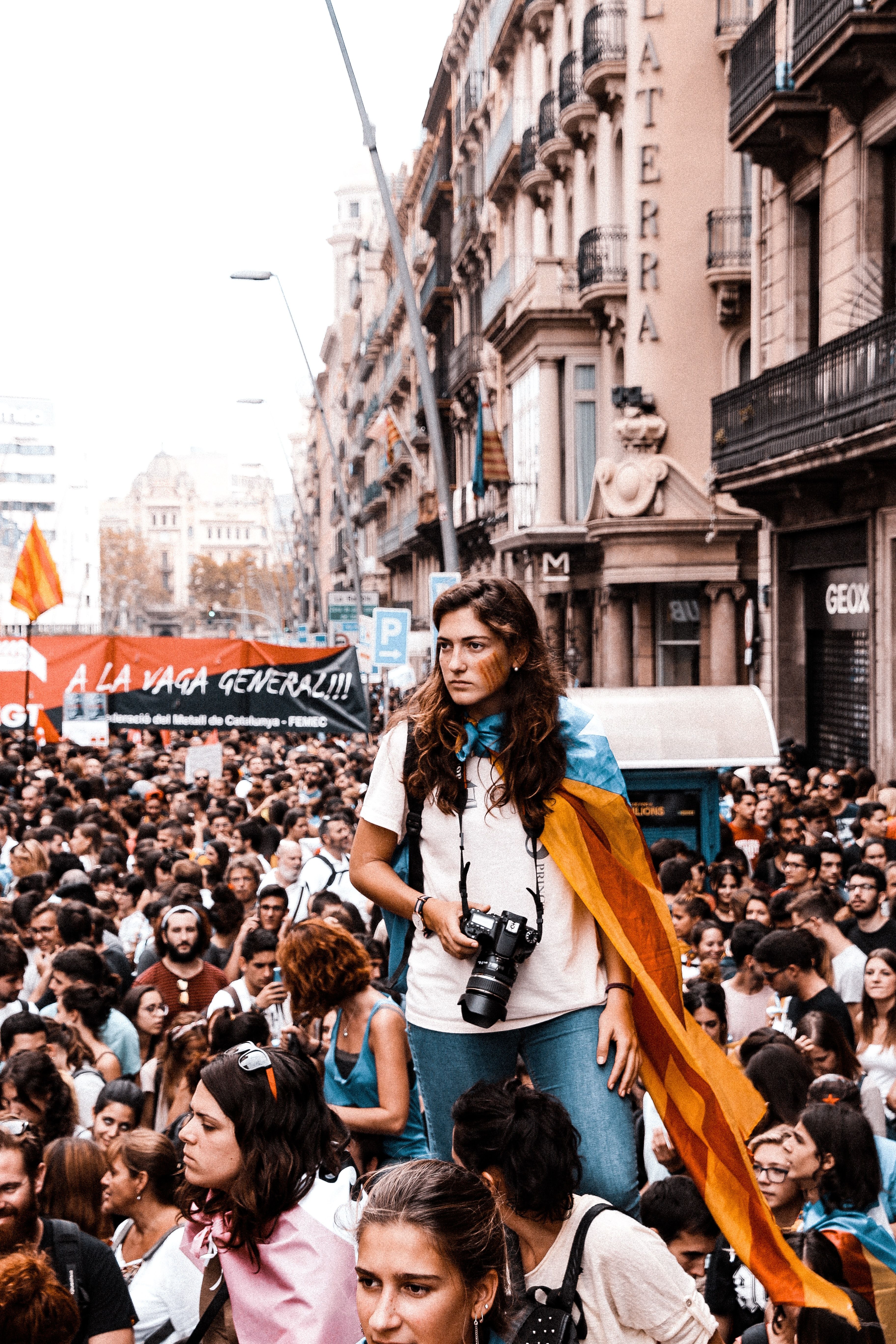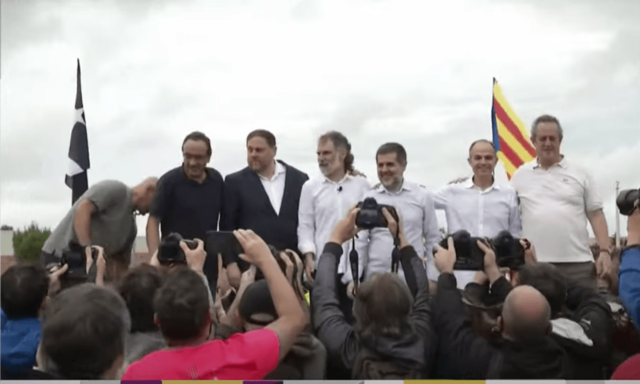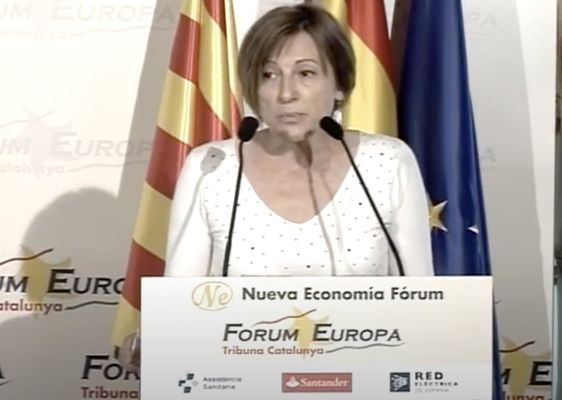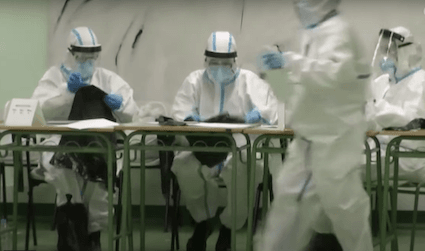The people of Catalonia go to the polls on the 14 February to elect members to the Catalan devolved parliament. The background to this regional general election is that in 2017 the Catalan parliament voted for independence from Spain, albeit by the smallest of margins.
A number of leading pro-independence politicians were imprisoned by the then right-wing Spanish government on trumped-up charges of treason. Some were given draconian prison sentences of up to 13 years in prison even though their activities had been wholly peaceful. The former president, Carles Puigdemont, fled Catalonia to avoid arrest and is in exile in Belgium.
The Judicial Court has temporarily released the political prisoners for the duration of the election campaign. This is expected to give a major boost to the pro-independence movement. The nine released include the president of the Catalan Parliament Carme Forcadell, Jordi Sanchez, Jordi Cuixart, and ministers Dolors Bassa, Raül Romeva, Jordi Turull, Joaquim Forn y Josep Rull, and Oriol Junqueras the leader of the left-wing independence party, Esquerra Republicana (Republican Left).
One of the striking features of Spanish politics in the last few years has been how little support there has been for the Catalan political prisoners, that is outside of Catalonia. In some regions of Spain the advance of Catalan nationalism has provoked a more strident Spanish nationalism.
The other pro-independence party is Junts per Catalunya (Together for Catalonia), whose leader is Carles Puigdemont. The fact that Junqueras chose not to go into exile and has endured more than three years of imprisonment is likely to go down well with the electorate (in a manner that many Irish readers will understand). In many parts of Barcelona, and more particularly in the rural areas, the yellow ribbon of support for the political prisoners is highly visible.
“Com a societat hem fallat, a la presó hi ha víctimes de l’exclusió social que, si haguessin tingut més oportunitats, no hi serien”.
— Carme Forcadell (@ForcadellCarme) December 31, 2020
Avui m’entrevista @elpuntavui. Hi parlo del futur, de política i també de les situacions que es viuen a la presó:
https://t.co/sQhPAmnwVj
The expectation is that Esquerra Republicana will emerge as the largest single party within the Catalan parliament. There is fierce rivalry between ERC and Together for Catalonia, the latter being a more centrist party on social and economic issues.
Whether a majority of voters will favour pro-independence parties remains to be seen. Some commentators anticipate a recovery in support for the Spanish socialists who favour a united Spain. The Spanish president, Pedro Sanchez, has despatched his popular Catalan minister for health, Salvador Illa, to lead the socialist campaign in Catalonia.
It is noteworthy that right-wing parties with strong anti-immigrant sentiments such as Partido Popular and Vox have attracted much less electoral support in Catalonia in previous elections as compared to Spain more generally.
Adding further uncertainty to the outcome, no one knows how campaigning under Covid restrictions will work out. In addition, the effects of the last year of Covid restrictions on voting behaviour are far from predictable. No doubt that particular factor will be noted carefully by political parties elsewhere in Europe.
FUTURE IN THE BALANCE: Protesting for Catalan independence in Barcelona
One of the striking features of Spanish politics in the last few years has been how little support there has been for the Catalan political prisoners, that is outside of Catalonia. In some regions of Spain the advance of Catalan nationalism has provoked a more strident Spanish nationalism. This has tended to favour conservative parties such as Vox and Partido Popular.
This means in turn that the Socialist government in Madrid has had to tread carefully in terms of its treatment of Catalan political demands. At the same time it is dependent on Catalan support in the Spanish parliament. This is the tightrope the Spanish prime minister, Pedro Sanchez, has had to walk.
The future is uncertain. It is not at all clear how the forthcoming election will help shape that future. There may be a low turnout due to the Covid pandemic. But it is also possible that this could turn out to be an election of profound historic significance, marking a major advance for Catalan nationalism or indeed the reverse.







